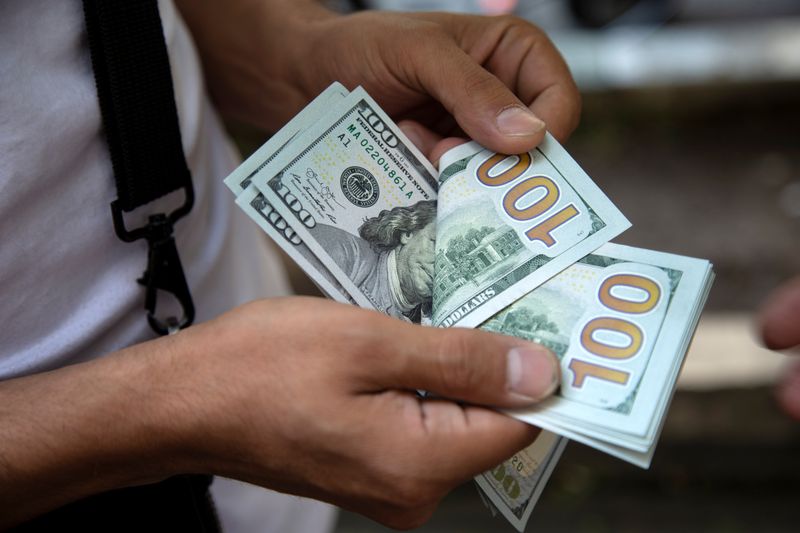By Gina Lee
Investing.com – The dollar was up on Thursday morning in Asia, finding some support as commodity currencies took a breather from their recent steep rally. However, a struggling Japanese yen from a recovery in the U.S. bond market.
The U.S. Dollar Index that tracks the greenback against a basket of other currencies edged up 0.18% to 98.790 by 12:08 PM ET (4:08 AM GMT).
The USD/JPY pair inched up 0.07% to 121.23. Data released earlier in the day showed that Japan’s manufacturing purchasing managers’ index (PMI) for March 2022 was 53.2, and the services PMI was 48.7.
The AUD/USD pair edge down 0.19 % to 0.7483, with Australia’s manufacturing PMI was 57.3 and the services PMI was 57.9. The NZD/USD pair edged down 0.2% to 0.6959.
The USD/CNY pair inched up 0.01% to 6.3729 and the GBP/USD pair inched down 0.09% to 1.3191. Thursday’s data showed that the U.K.’s consumer price index grew 0.8% month-on-month and 6.2% year-on-year in February. The producer price index input grew 14.7% year-on-year and 1.4% month-on-month, while the producer price output grew 0.8% month-on-month and 10.1% year-on-year.
The Australian and New Zealand dollars remained just below multi-month peaks, while the euro traded at $1.0989 after a small overnight fall.
The yen hit a six-year low of 121.41 per dollar on Wednesday, remaining near that level in the Asian session. The Bank of Japan also released the minutes from its latest policy meeting earlier in the day, which showed that policymakers agreed that consumer inflation could overshoot expectations if companies pass on rising costs quicker than forecast.
An ever-hawkish turn by the U.S. Federal Reserve has further widened that policy gap with its Japanese counterpart. San Francisco Fed President Mary Daly said both a 50 basis-point interest-rate hike and a decision to begin asset tapering could be warranted at the next Fed policy meeting in May 2022, while Cleveland Fed President Loretta Mester said she supported front-loading rate increases in 2022.
But even an overnight steadying in the U.S. Treasury market after a few sessions of brutal selling did not provide much support to the yen.
"The fundamental drivers of dollar/yen now are U.S. rates as well as Japan's current-account deterioration because of high oil prices," Barclays PLC senior FX strategist Shinichiro Kadota told Reuters.
"From a technical perspective, about 121.7 was the high from early 2016, so that would be the next key target in the really near term, but if we break above that, 125 could come into focus."
Benchmark 10-year U.S. Treasuries, which were battered by increasing bets on aggressive interest rate hikes from the Fed, regained some losses overnight. Yields fell by 9 basis points (bps), although they are still up more than 50 bps in March to date.
